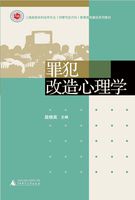First then we observe that some things always come to pass in the same way, and others for the most part. It is clearly of neither of these that chance is said to be the cause, nor can the 'effect of chance' be identified with any of the things that come to pass by necessity and always, or for the most part. But as there is a third class of events besides these two-events which all say are 'by chance'-it is plain that there is such a thing as chance and spontaneity; for we know that things of this kind are due to chance and that things due to chance are of this kind.
But, secondly, some events are for the sake of something, others not. Again, some of the former class are in accordance with deliberate intention, others not, but both are in the class of things which are for the sake of something. Hence it is clear that even among the things which are outside the necessary and the normal, there are some in connexion withwhich the phrase 'for the sake of something' is applicable. (Events that are for the sake of something include whatever may be done as a result of thought or of nature.) Things of this kind, then, when they come to pass incidental are said to be 'by chance'. For just as a thing is something either in virtue of itself or incidentally, so may it be a cause. For instance, the housebuilding faculty is in virtue of itself the cause of a house, whereas the pale or the musical is the incidental cause. That which is per se cause of the effect is determinate, but the incidental cause is indeterminable, for the possible attributes of an individual are innumerable. To resume then; when a thing of this kind comes to pass among events which are for the sake of something, it is said to be spontaneous or by chance. (The distinction between the two must be made later-for the present it is sufficient if it is plain that both are in the sphere of things done for the sake of something.)
Example: A man is engaged in collecting subscriptions for a feast.
He would have gone to such and such a place for the purpose of getting the money, if he had known. He actually went there for another purpose and it was only incidentally that he got his money by going there; and this was not due to the fact that he went there as a rule or necessarily, nor is the end effected (getting the money) a cause present in himself-it belongs to the class of things that are intentional and the result of intelligent deliberation. It is when these conditions are satisfied that the man is said to have gone 'by chance'. If he had gone of deliberate purpose and for the sake of this-if he always or normally went there when he was collecting payments-he would not be said to have gone 'by chance'.
It is clear then that chance is an incidental cause in the sphere of those actions for the sake of something which involve purpose.
Intelligent reflection, then, and chance are in the same sphere, for purpose implies intelligent reflection.
It is necessary, no doubt, that the causes of what comes to pass by chance be indefinite; and that is why chance is supposed to belong to the class of the indefinite and to be inscrutable to man, and why it might be thought that, in a way, nothing occurs by chance. For all these statements are correct, because they are well grounded. Things do, in a way, occur by chance, for they occur incidentally and chance is an incidental cause. But strictly it is not the cause-without qualification-of anything; for instance, a housebuilder is the cause of a house; incidentally, a fluteplayer may be so.
And the causes of the man's coming and getting the money (when he did not come for the sake of that) are innumerable. He may have wished to see somebody or been following somebody or avoiding somebody, or may have gone to see a spectacle. Thus to say that chance is a thing contrary to rule is correct. For 'rule' applies to what is always true or true for the most part, whereas chance belongs to a third type of event. Hence, to conclude, since causes of this kind are indefinite, chance too is indefinite. (Yet in some cases one might raise the question whether any incidental fact might be the cause of the chance occurrence, e.g. of health the fresh air or the sun's heat may be the cause, but having had one's hair cut cannot; for some incidental causes are more relevant to the effect than others.)
Chance or fortune is called 'good' when the result is good, 'evil' when it is evil. The terms 'good fortune' and 'ill fortune' are used when either result is of considerable magnitude. Thus one who comes within an ace of some great evil or great good is said to be fortunate or unfortunate. The mind affirms the essence of the attribute, ignoring the hair's breadth of difference. Further, it is with reason that good fortune is regarded as unstable; for chance is unstable, as none of the things which result from it can be invariable or normal.
Both are then, as I have said, incidental causes-both chance and spontaneity-in the sphere of things which are capable of coming to pass not necessarily, nor normally, and with reference to such of these as might come to pass for the sake of something.















